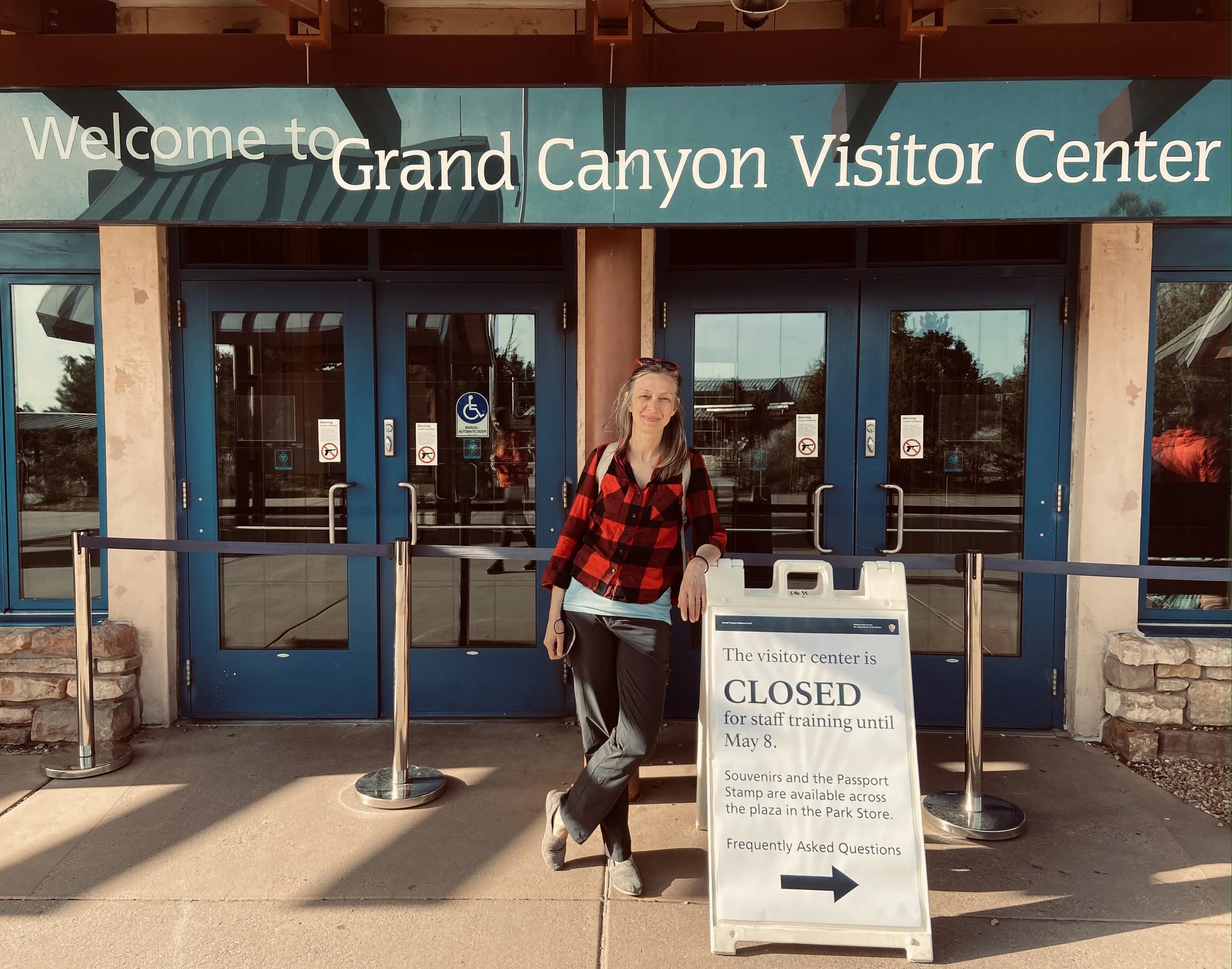Without interpretation
Back in April, revisiting old haunts.
4,000 years ago (ok, it was 1997) I worked as a sort of junior park ranger at the Grand Canyon. I was 19, and my job, for the tiny museum on the east end of the park, was to be an Interpreter. The idea was to interpret the artifacts and ruins for the visitors who stopped by, to make meaning out of pottery sherds and piles of stone.
“This piñon pine tree,” I’d say, adjusting my hat, “was an important source of nutrition, producing nuts that have an astounding 190 calories per handful. That’s more than a bag of M&Ms!” Slowly we’d plod along the circular path, me reciting facts I barely knew to folks who wouldn’t remember them.
All respect to the park rangers, historians, and anthropologists of the world, but I do wonder sometimes if we put a bit too much stock in interpretation. If we have just the smallest obsession with understanding why.
I certainly do. When I’m in an autoimmune flare, I want so much to lay out the pieces like a jigsaw, or a map. See here, how you over extended? And this time, when you allowed yourself whipped cream, your secret nemesis?
But sometimes, symptoms defy explanation. My interpretive skills fall short, and my attempts to ascribe order, meaning, and reason actually come in on the channel of how I screwed this all up again. Which can feel like quite the pile up: I’m flaring, and now, in ways I can’t explain, it’s also my fault.
Sometimes it’s kinder to drop interpretation and be as direct as we can: I am exhausted. I hurt. I’m thirsty.
These observations don’t help us map how we got here, but they do bring us to the present moment where we might meet our actual needs (rather than, say, a fantastical time where we did all the things to prevent this).
This direct, kind witness can be a balm for chronic illness as it can for depression, grief, for all the mysterious pains that visit us when they do.
And to be clear, this isn’t a call for ignorance or silent withstanding. Treatment, support, education - we need our practitioners and our teachers, our networks of care and information. Only that, in our rush to make meaning, we can distance ourselves from life as it’s being lived.
Years on, I wonder how it would have been if - rather than interpreting, back at that small museum - we had simply walked around together, noticing what we saw, engaging with the landscape like toddlers: climbing, tasting, looking again. What would have happened if we were direct in our witness? If we allowed for the mystery that knows less but makes room for more.
As we enter this holiday season, perhaps we could invite our selves to explore rather than understand, knowing that some things defy explanation. Knowing that our kind witness is its own form of care.
It’s a subtle act that might invoke a different sort of magic - small, direct, immediate, kind - that needs no interpretation.
